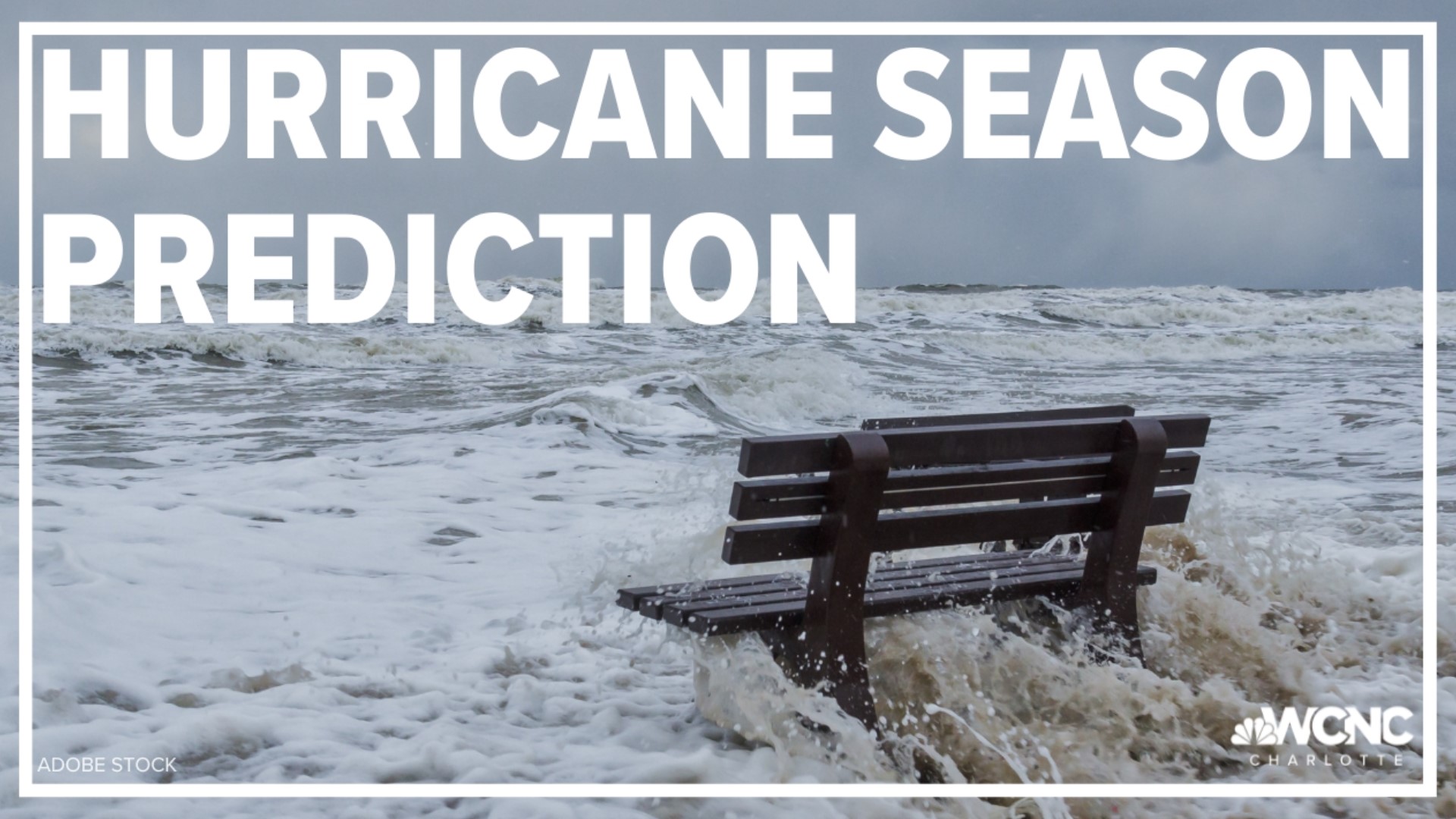CHARLOTTE, N.C. — Every year, several meteorological groups put together a forecast for the upcoming hurricane season. NOAA's hurricane season forecast comes out in mid-to-late May.
North Carolina State University researchers released its hurricane forecast on Thursday for the 2023 hurricane season.
They are calling for 11 to 15 storms in the Atlantic this season, but about six to eight of those will grow strong enough to be hurricanes, and two to three could become major hurricanes.
Colorado State University has issued its forecast for the 2023 Atlantic hurricane season with numbers just slightly below average, too. Colorado State's forecast calls for 13 named storms, six hurricanes and two major hurricanes, which are rated Category 3 or higher.
A typical season averages 14 named storms, seven hurricanes and three major hurricanes.
2022 was forecast to be an active season, but the slow start kept things quiet through August. In fact, the season's first hurricane didn't develop until early September.
Fiona and Ian would follow later in September, which were the only two major hurricanes of the season. Both are now retired names after leaving a trail of devastation across the Caribbean and Florida making 2022 a season we won't soon forget.
So what factors are driving this year's forecast?
One of the bigger factors is the transition from La Niña to El Niño. For the past few seasons, we have been in a La Niña phase which typically produces above-average activity.
We are now moving into a neutral phase with an El Niño forecasted to develop by fall 2023 into winter. NOAA is now giving over an 80% chance for El Niño during the peak of the season. This tends to favor below-average hurricane activity with more wind shear across the Atlantic. Wind shear usually hampers the ability of tropical systems to organize into storms or hurricanes.
On the other hand, sea surface temperatures are becoming more favorable. Currently, sea temperatures across the Atlantic are running above average including in the Gulf of Mexico. Since this is a source of energy for tropical systems, more warmth equals more energy potential.
Hurricane season typically runs from June 1 through Nov. 30.
Wake Up Charlotte To Go is a daily news and weather podcast you can listen to so you can start your day with the team at Wake Up Charlotte.
SUBSCRIBE: Apple Podcasts || Spotify || Stitcher || TuneIn || Google Podcasts
All of WCNC Charlotte's podcasts are free and available for both streaming and download. You can listen now on Android, iPhone, Amazon, and other internet-connected devices. Join us from North Carolina, South Carolina, or on the go anywhere.

